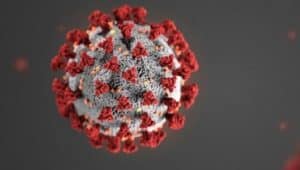
How COVID-19 has affected the oncology drugs market
pharmafile | January 25, 2021 | Feature | Business Services, Manufacturing and Production, Medical Communications, Research and Development, Sales and Marketing | COVID-19, Cancer
In its disruption to clinical trials and drug supply to patients, the COVID-19 pandemic has impacted the most crucial areas of the cancer drugs market – but not every change has necessarily been for the worse. Darcy Jimenez explores how the difficulties caused by the coronavirus crisis could improve drugs research, and speaks to major players about how they’ve adapted during this time
Almost every industry has faced significant challenges as a result of the COVID-19 pandemic and, despite a constant and global demand for medicines, pharmaceutical companies are no exception.
The oncology drugs market is estimated to reach a value of $176.5 billion by 2025 – but this projection fails to capture the impact the crisis has had. According to a report from Research & Markets, the global cancer drugs market is expected to have declined from $84.4 billion in 2019 to $75.5 billion in 2020, with the COVID-19 outbreak unsurprisingly cited as the chief cause.
The pandemic has directly affected the supply of oncology drugs to cancer patients; not only is it difficult to administer chemotherapy and certain other treatments outside of a clinic, but the spread of coronavirus has reduced patients’ willingness and ability to access not just treatments, but trials for new medicines.
COVID-19’s interference with the research and development of new treatments is one of the most significant blows that has been dealt to the cancer drugs market. Nigel Blackburn, Director of Cancer Research UK’s Centre for Drug Development, told Pharmafocus the pandemic initially drew recruitment for UK clinical trials to an almost complete halt.
“From about April last year until July or August time, all British hospitals stopped recruiting patients into new clinical trials,” he explained. “And they even stopped treating some patients already in clinical trials, if the visits weren’t deemed completely necessary – so clinical development definitely had to pause last year.
“There was also a complete block on opening new trials as well – just getting them open, never mind recruiting patients. That will have had a negative impact on the market of new cancer drugs.”
Looking to the future
A Cancer Research Institute and IQVIA survey published in Nature Reviews Drug Discovery found that patient enrolment in oncology clinical trials during the early stages of the pandemic was significantly impacted in the United States and Europe, where 60% and 86% of institutions respectively were enrolling new patients at a lower rate. The main obstacles to enrolment in trials were access, concerns over patients’ risk of contracting the virus, and the types of treatments being trialled – intravenous drugs, for example, cannot be administered at home.
As a result of these barriers, 73% of the clinical trial investigators surveyed reported that they were avoiding or planning to avoid immunosuppressive treatment regimens, while 64% were shipping or planning to ship oral drugs directly to patients’ homes.
Surveyed investigators also expressed concern over the risk of missing or delayed data collection from disrupted ongoing trials, while analysis of data from ClinicalTrials.gov also indicated that over 200 interventional oncology studies were suspended because of COVID-19 between March and April of last year.
“I would say a very, very conservative estimate of time lost would be four months, but it’s probably more than that,” Blackburn commented. “Because even though sites started to recruit patients again in July time, there was such a backlog of work in hospitals, and it takes a while to get back up to speed with things.”
While it seems COVID-19 has caused nothing but harm to the cancer drugs market, this may not be entirely the case. Though the short-term effects have been damaging, Blackburn predicts that in the long-term, the pandemic may change the way we trial drugs for the better.
“There could be some positives to come out of this, because what had to very quickly happen during that lockdown, was a lot of sometimes slow and unwieldy bureaucratic processes actually got speeded up,” he told Pharmafocus. “For instance, although our primary focus is oncology, we are actually running a COVID trial at the moment.”
“We secured a grant from LifeArc, and we’re collaborating with some academics from Oxford to run a COVID trial, so we have first-hand experience of how quickly things moved for COVID research during the early part of the lockdown.”
Blackburn explained that organising a trial like this would have normally taken at least six months, but that the pandemic has shown how quickly the clinical trial process can move when it needs to. He said that while the pandemic remains especially bleak for cancer patients, the lessons researchers have learned during this time will benefit cancer drug development – and, therefore, the oncology drugs market – in the long run.
“The move to virtual, decentralised trials, and the move to more patient-centric trials can only help to improve patient recruitment and patient compliance, and also, therefore, drug development.”
Staying on track
The development of new drugs during the pandemic has proven challenging, but how has COVID-19 impacted the sales of treatments already on the market? It would be fair to assume the difficulties created by coronavirus have resulted in nothing but loss, however some companies have found themselves adapting and, in some cases, even thriving in the face of the crisis.
A spokesperson for Swiss healthcare giant Roche told Pharmafocus that while the company’s pharmaceutical division saw a 1% decline in sales during the first nine months of 2020, it has been able to “keep complex supply chains running, ensuring vital medicines continue to reach patients in need and to provide access” during the pandemic.
Roche also continued to see strong sales for its cancer drugs during this period. Sales of Perjeta, a treatment for HER2-positive breast cancer and one of the company’s best-selling drugs, increased by 17%, while sales of Tecentriq, another of its popular products, were up by 64%.
Françoise Bartoli, Vice President and Head of Europe and Canada Region, Oncology Business at AstraZeneca, told Pharmafocus that despite the COVID-19 pandemic posing a threat to decades of progress in oncology, the British-Swedish company has been quick to adapt.
“In R&D, the rapid implementation of multiple digital technologies has led to real-time monitoring of trials around the world, allowing us to see quickly where recruitment or medicines supply might be impacted, and permitting proactive countermeasures to quickly ensure continuity,” Bartoli said. “Similarly, our COVID-19 reporting procedure provides automated daily updates on the impact of the pandemic across a number of different areas including clinical studies and medicine supply.”
She adds: “While developing our pipeline continues to remain imperative to our goals, we have also accelerated the creation of new technologies that can lead to early cancer diagnosis and testing to identify genetic biomarkers for more personalised treatments. Designing more clinical trials focused on early identification and treatment is also key to our work in this space.
“Our ambition to cure cancer as a cause of death has not been diminished by COVID-19 and, if anything, it has strengthened our resolve to develop and deliver early detection strategies and medicines to provide optimal healthcare solutions for people with cancer.”
Patient focus
As well as adapting to ensure a secure drug supply, and developing much-needed technology to improve cancer diagnosis and testing, AstraZeneca has taken steps to ensure patient care is not compromised during the coronavirus crisis.
“The pandemic has significantly affected important developments in patient care and as more people fear leaving their homes to seek medical attention, our efforts have been focused on providing support and ensuring continuity of care and, where possible, extending treatment to new patients,” Bartoli stated.
Providing this care and support means delivering services remotely, and the company has accelerated a number of initiatives to make this possible.
It has begun to roll out HAYA, an integrated oncology care management platform to keep patients and healthcare professionals connected, in a number of European countries. In Singapore, which had more COVID-19 cases than anywhere in South-East Asia at the start of the pandemic, AstraZeneca also collaborated with hospitals and a homecare nurse provider service to ensure that patients were still receiving the care and support they needed.
Another key aspect of maintaining patient care is identifying alternatives to healthcare facility-based treatment and testing. AstraZeneca has enabled home delivery of oral medicines where possible, and has introduced a home biomarker testing service for epidermal growth factor receptor and breast mutations, which are necessary for patients to qualify for certain precision medicines. A new dosing option of AstraZeneca’s Imfinzi – which is given by intravenous infusion – has been approved for lung and bladder cancer in the US, and lung cancer in the EU and UK, allowing some patients to reduce their medical visits by 50%.
Bartoli added that elevating partnerships with key stakeholders, and collaborating with scientific societies, experts, governments, and patient advocacy groups was crucial to maintaining optimal patient care.
“For example, in Russia, aligned with our Lung Ambition Alliance strategy, which aims to double five-year survival in lung cancer by 2025, the team came up with an approach to retrospectively analyse hundreds of thousands of COVID-19 scans using AI for signs of the disease,” she explained. “In Europe alone, we have been able to work collaboratively with the scientific community to pilot over 20 lung cancer screening programs last year, which could in the long term improve outcomes for patients.
“Concern that patient care has diminished since the start of the pandemic has been felt across the globe and, in response, we partnered with global patient coalitions to build a platform to deliver an awareness campaign helping patients to re-engage with the healthcare system and drive screening,” she said. “Our ‘New Normal, Same Cancer’ initiative urges cancer patients to return to cancer services, and calls on the global healthcare community to ensure low-COVID-risk pathways are in place for patients to support screening and care needs.”
Not only has AstraZeneca adapted to the challenges presented by the COVID-19 pandemic, but it has also seen a 24% growth in sales for the year at Q3. Bartoli explained that a number of factors allowed the company to grow during such a difficult time.
“We have been able to react and make quick and considered choices that have led to advances in delivering and evolving cancer care,” she said. “This includes evolving our business model, elevating our partnership with key stakeholders to adapt guidelines, engaging regulatory bodies to update our product labels, and working with health authorities to enable access to our medicines.
“Whilst the pandemic has challenged our ways of working, we have also seen opportunities arise that have really helped us re-evaluate and accelerate our thinking and strategies to help evolve cancer care towards a smarter and more effective future.”
There is no doubt that the COVID-19 pandemic has had a significantly negative impact on cancer patients – but there is long-term hope in the improvements and innovations that have been borne out of the crisis.
What Blackburn at Cancer Research UK predicts, AstraZeneca’s Bartoli says has already happened: “The rapid pivot to digital – initially catalysed by COVID-19 – is here to stay.”
Darcy Jimenez
Related Content

COVID-19 vaccine eligibility creates challenges for UK pharmacies
Pharmacists across England have reported widespread confusion among patients attempting to book COVID-19 vaccination appointments …

Central nervous system cancer metastases – the evolution of diagnostics and treatment
The current forms of immunotherapy, how T cell therapy works and what the future holds

Mental health medicine use in England reaches record high, NHSBSA report reveals
According to new data published by the NHS Business Services Authority (NHSBSA), mental health prescriptions …






